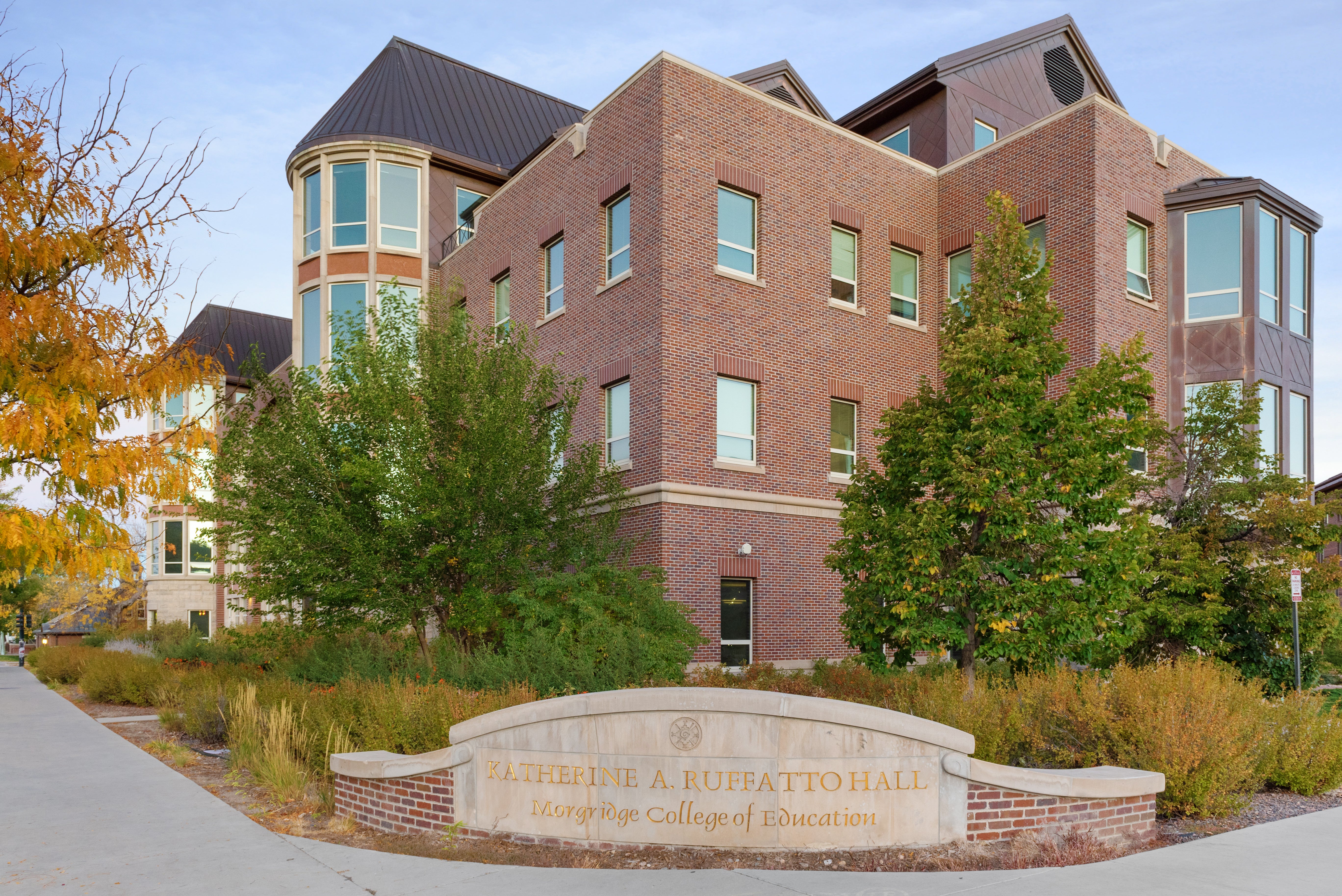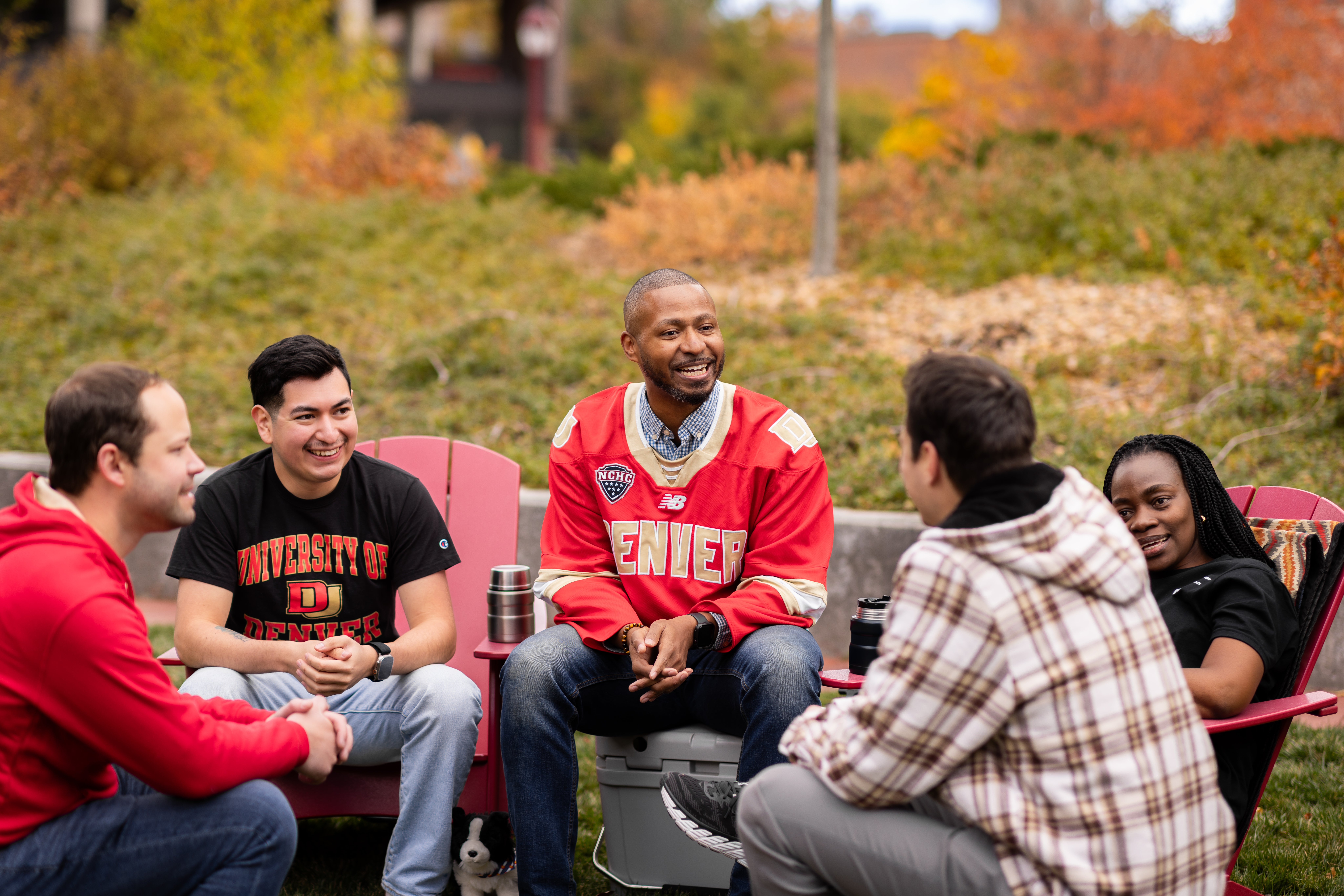MCE Inspires Local Lawyer to Social Justice
To veteran Denver real estate attorney Ed Barad, his retirement is important, but his legacy is more so. Barad had been considering how he would approach retirement when he accompanied his friend and client, Robert Metzler, on a tour of the University of Denver’s Morgridge College of Education. Metzler recently gave a historic legacy gift to students at Morgridge, and he was touring the education college to see firsthand how the students would benefit. During the tour, Morgridge Dean Dr. Karen Riley talked with Barad about their initiative for inclusion, social justice, and change. Riley made sure he had a copy of Evicted, the book faculty and staff were reading to discuss at an upcoming retreat.
Evicted: Poverty and Profit in the American City, by Princeton sociologist Matthew Desmond, follows eight families in Milwaukee as they struggle to keep a roof over their heads. Barad was touched by the book, and around the time he finished it The Denver Post published a series on local families also facing eviction. In the middle of Colorado’s housing shortage, an eviction is devastating to low-income renters. Once on their record, tenants have a nearly impossible time finding a new home.
One of the Top Real Estate lawyers in Colorado, Barad had an idea. He approached his firm, Brownstein Hyatt Farber Schreck , about creating a pro-bono team dedicated to fighting evictions for low-income families. The firm has always been dedicated to pro-bono service and has built-in pro-bono hours for all areas of law and according to Barad, not every hour has to be billable. Creating this team focused on evictions was a natural move for the firm, and something the firm considered consistent with its mission. The team launched in the spring of 2018 with 20 lawyers on board, and by the fall they had taken on 16 cases.
Clients first contact the Colorado Poverty Law Project, a nonprofit partner in fighting eviction in Colorado that refers cases from Colorado Legal Services. The project filters requests for help through various lawyers and firms, referring clients to Brownstein when there is availability and need. All partners have the same goal: to keep people from having an eviction, something Barad calls “a death warrant,” on their record and becoming homeless
A death warrant is an accurate description. According to Facing Eviction Alone, a 2017 joint report from the Colorado Coalition for the Homeless and the Colorado Poverty Law Project,
“In 2016, there were more than eight thousand eviction complaints filed against residents of Denver, in addition to nearly 37,000 evictions filed in other Colorado counties. The stakes of these eviction proceedings are high, as a loss in court not only results in a tenant’s dispossession of their home, but also produces an ‘eviction record’ that limits future housing prospects. Further, the loss of shelter, even for brief periods, often causes unemployment, educational disruptions, and food insecurity for families.”
Further, the study concluded
- Tenants are virtually never represented by counsel in eviction cases. While landlords had legal representation in every case reviewed, tenants were only represented by an attorney in 1 to 3 percent of the cases reviewed.
- The assistance of an attorney significantly improved tenants’ chances of remaining in their homes. In the few instances in which a renter had legal counsel, they usually prevailed in the eviction proceeding. Without representation, the dispossession rate was 43 percent in DHA cases and 68 percent in the sample of private housing cases.
- Many tenants lost possession of their homes due to “stipulated” agreements. This suggests that, without the assistance of counsel, many renters are unable to protect their interests in court.
- Landlords filed many evictions due to only a few dollars of unpaid rent. For example, Denver Housing Authority filed one eviction over an alleged $4 of unpaid rent, and the median amount in dispute was only a bit higher than $200.
- Physical addresses of defendants suggest that evictions disproportionately affect neighborhoods with more people of color and areas of rapid growth and gentrification.
So far, people are paying attention to this social problem – something Barad considers to have national dimensions. Locally, the City of Denver created a pilot legal defense team to fight evictions, which launched in June. The fund was initially created through Denver City Council Members who pooled their leftover office budgets.
For Barad, this is not a bad start for what he wants to achieve. As he continues to move toward retirement, he has no plans to slow down. Rather, he wants to make sure his firm creates a larger platform for young attorneys to help people in need. His visit to Morgridge turned out to be an inspiration and perfect timing.



